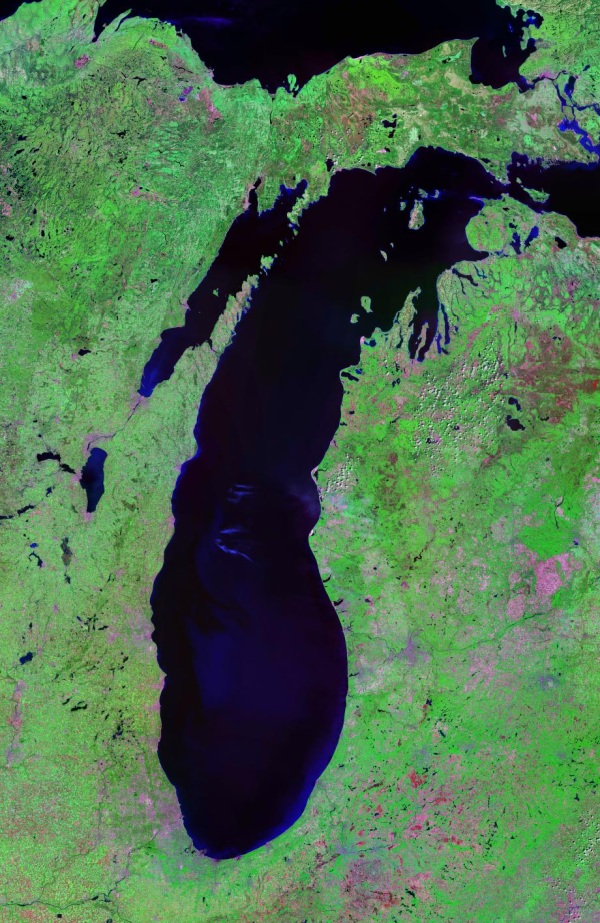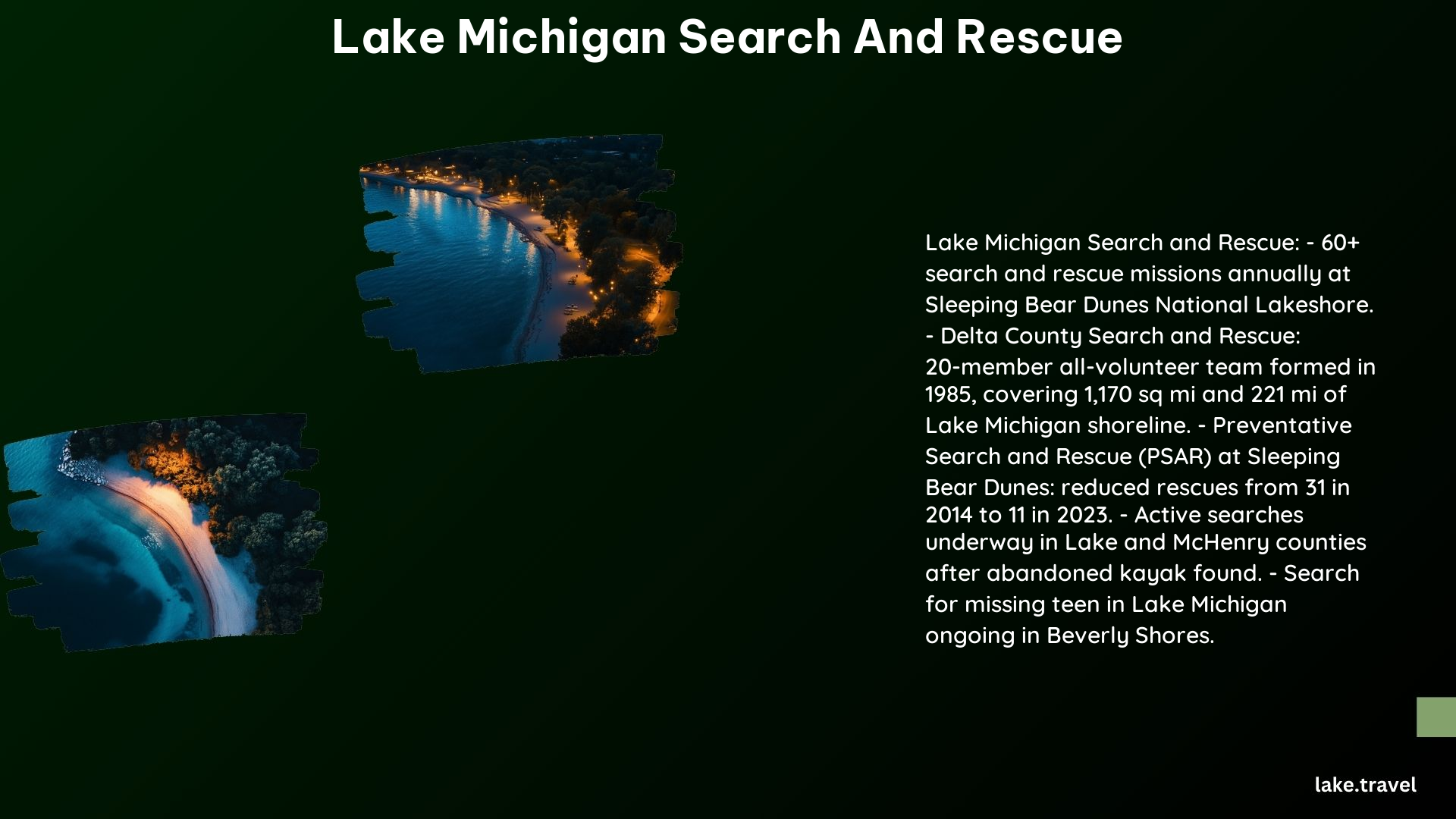Lake Michigan, one of the Great Lakes, is a vast and beautiful body of water that attracts millions of visitors each year. However, with its unpredictable weather, strong currents, and cold temperatures, it can also be a dangerous environment, requiring a dedicated team of search and rescue professionals to ensure the safety of those who venture onto its waters.
Common Hazards During Search and Rescue Operations on Lake Michigan

Rip Currents
Rip currents are a significant hazard on Lake Michigan, contributing to the dangers of swimming. These powerful, narrow currents can pull swimmers away from the shore, making it difficult for them to return to safety.
Weather Conditions
The weather on Lake Michigan can change rapidly, with strong winds and waves that can make rescue operations challenging. For example, waves forecasted at 6 to 9 feet can pose a significant threat to swimmers and boaters.
Water Temperature
Lake Michigan’s water temperature can be cold, especially in deeper areas, which can lead to hypothermia and other cold-water-related illnesses. This can be a significant concern for those who fall into the water or are stranded on the lake.
Marine Emergencies
In addition to water-related emergencies, search and rescue teams on Lake Michigan may also respond to various marine emergencies, such as boat accidents or missing persons.
Measures to Prevent and Respond to Water Emergencies on Lake Michigan

Preventative Search and Rescue (PSAR)
Programs like PSAR at Sleeping Bear Dunes National Lakeshore educate visitors on trail and water conditions, hiking safety, and provide proactive assistance to reduce the need for search and rescue operations. By empowering visitors with knowledge and resources, these programs aim to prevent emergencies before they occur.
Volunteer Teams
Volunteer teams like Delta County Search and Rescue, formed in 1985, respond to technical rescues, including ice rescue, swiftwater rescues, and high-angle rope rescue. These dedicated volunteers undergo rigorous training and work closely with local authorities to ensure a coordinated and effective response.
Mutual Aid Agreements
Mutual aid agreements between counties ensure that resources are shared and responses are coordinated effectively in emergency situations. This allows for a more comprehensive and efficient search and rescue operation, leveraging the expertise and equipment of multiple agencies.
Training and Equipment
Search and rescue teams on Lake Michigan are equipped with specialized gear to handle various rescue scenarios, including swiftwater rescues and high-angle rope rescue. They also undergo extensive training to ensure they are prepared to respond to a wide range of emergencies.
Community Involvement
Fundraising efforts and donations from the community support search and rescue teams, ensuring they have the necessary resources to respond to emergencies. This community involvement is crucial in maintaining the effectiveness of these vital services.
Statistics and Data Points
- Delta County Search and Rescue: Responds to calls for missing persons, ice rescue, swiftwater rescues, high-angle rope rescue, and more, covering 1,170 square miles of Delta County and 221 miles of Lake Michigan shoreline.
- Sleeping Bear Dunes National Lakeshore: Conducts over 60 search and rescue missions annually, with a significant reduction in rescues and 911 calls since the establishment of the PSAR program in 2014.
Contact Information
- Delta County Sheriff’s Office: (906) 786-3633 for questions or donations.
- PSAR Coordinator: Jesse Lewit, jlewit1128@gmail.com for information on becoming a PSAR volunteer.
